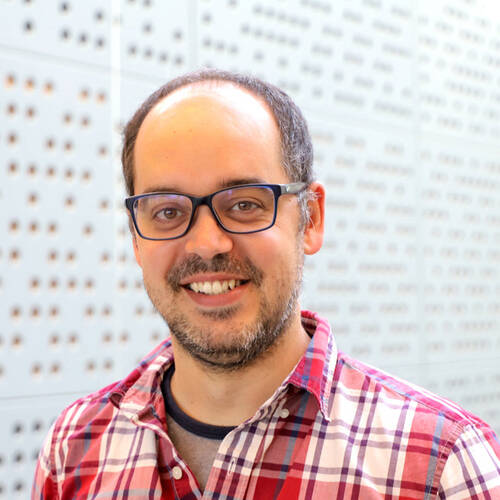Eduard Porta
Junior Group Leader
Biography
I did my PhD in Bioinformatics in Barcelona (2013), with Ana Maria Rojas, where I worked on how mutations associated to different diseases also have different molecular properties. Then, I moved to San Diego, USA, to join Adam Godzik’s laboratory (2013-2017). There, I focused my initial research on the identification of cancer driver protein regions. I developed e-Driver, an algorithm that fins protein regions (domains or interaction interfaces) enriched in cancer somatic mutations. Using data from The Cancer Genome Atlas I found novel regions that had not been previously linked to cancer. My results have also given novel insights into well-established cancer-driver genes, such as TP53 or EGFR. We also applied this sub-gene analysis to identify novel drug biomarkers. I analyzed data from the Cancer Cell Line Encyclopedia (CCLE), and found 405 protein domains associated with differences in drug sensitivity. As a result, we created a spin-off company, Genrix, that aimed to help drug companies find biomarkers for their candidates. I have also worked in cancer immunology. It is now clear that cancer cells need to avoid the immune system in order to survive, and therapies aimed at restoring the immune response against cancer cells are transforming the landscape of therapies in a way that was unimaginable only a few years ago. I discovered over 100 protein regions that, when mutated, correlate with the presence of lymphocytes in the tumor micro-environment. These results, as well as the algorithm, are currently used by scientists at Regeneron, a biotechnology company employing over 5,500 people, for their own projects. This last example highlights the core values of my research: ethical and scientific integrity, maximize its impact in society and collaborate with others to achieve a greater goal. For example, to ensure the transparency and reproducibility of my research, all the algorithms that I created are posted on my Github account. This also helps to maximize their impact, since they can be used by other researchers for their own projects. Another example is my recent role as lead analyst of the TCGA PanCancer Atlas project. This consortium put together over 1000 scientists in more than 20 countries to jointly analyze the entire TCGA dataset. As a member of the oncogenic processes, driver genes and pan-immunity analysis working groups, I had the opportunity and privilege to contribute my expertise to this community and help to discover new subtypes of cancer immune responses, expand the catalogue of cancer driver genes and how germline variations predispose to different cancer types. Between 2017 and 2019 I worked with Alfonso Valencia at the Barcelona Supercomputing Center. There, I focused my efforts on the integration of multiple types of omics data to understand how they contribute to oncogenesis together, instead of individually. This merited me to obtain a La Caixa Junior Leader Fellowship that currently funds me and a PhD student. Since January 2020 I am the Junior Group Leader of the Cancer Immunogenomics laboratory at the Josep Carreras Leukaemia Research Institute. We are currently developing tools to integrate single-cell and spatial transcriptomics data from tumors with cohort characterized with bulk genomics technologies.